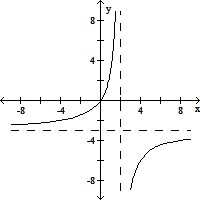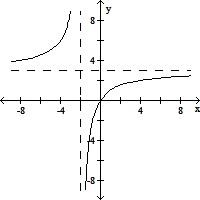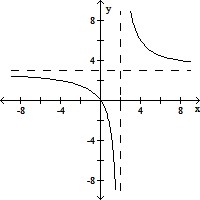Provide an appropriate response.Explain why  = ?x? when k is even but
= ?x? when k is even but  = x when k is odd.
= x when k is odd.
What will be an ideal response?
When k is even,  represents a nonnegative number. When x is nonnegative, then
represents a nonnegative number. When x is nonnegative, then  represents x. When x is negative, then
represents x. When x is negative, then  represents the opposite of x. In all cases,
represents the opposite of x. In all cases,  represents ?x? when k is even. When k is odd, the sign of
represents ?x? when k is even. When k is odd, the sign of  is the same as the sign of x. Thus
is the same as the sign of x. Thus  when k is odd.
when k is odd.
You might also like to view...
Solve the problem.A swimming pool 2 meters deep, 11 meters long, and 6 meters wide is filled with water. What volume of water does the pool contain?
A. 132 m3 B. 153 m3 C. 12 m2 D. 66 m2
Provide an appropriate response.Find the approximate cost by rounding to a single digit and then find the exact cost of 12 cans of cat food if each can costs $0.49.
A. $6; $5.88 B. $5; $5.88 C. $5; $5.78 D. $6; $5.78
For the rational function below (i) Find the intercepts for the graph; (ii) Determine the domain; (iii) Find any vertical or horizontal asymptotes for the graph; (iv) Sketch any asymptotes as dashed lines. Then sketch the graph of y = f(x).f(x) = 

A. (i) x intercept: 0; y intercept: 0
(ii) Domain: all real numbers except 2
(iii) Vertical asymptote: x = 2; horizontal asymptote: y = -3
(iv)
B. (i) x intercept: 0; y intercept: 0
(ii) Domain: all real numbers except -2
(iii) Vertical asymptote: x = -2; horizontal asymptote: y = -3
(iv)
C. (i) x intercept: 0; y intercept: 0
(ii) Domain: all real numbers except -2
(iii) Vertical asymptote: x = -2; horizontal asymptote: y = 3
(iv)
D. (i) x intercept: 0; y intercept: 0
(ii) Domain: all real numbers except 2
(iii) Vertical asymptote: x = 2; horizontal asymptote: y = 3
(iv)
Solve the problem.If an object is thrown upward with an initial velocity of 112 ft/s, its height after t seconds is given by  Find the maximum height attained by the object.
Find the maximum height attained by the object.
A. 112 ft B. 96 ft C. 196 ft D. 180 ft